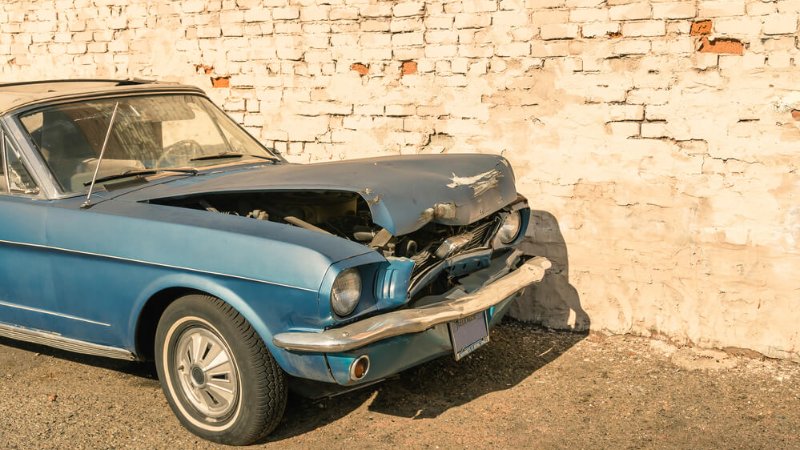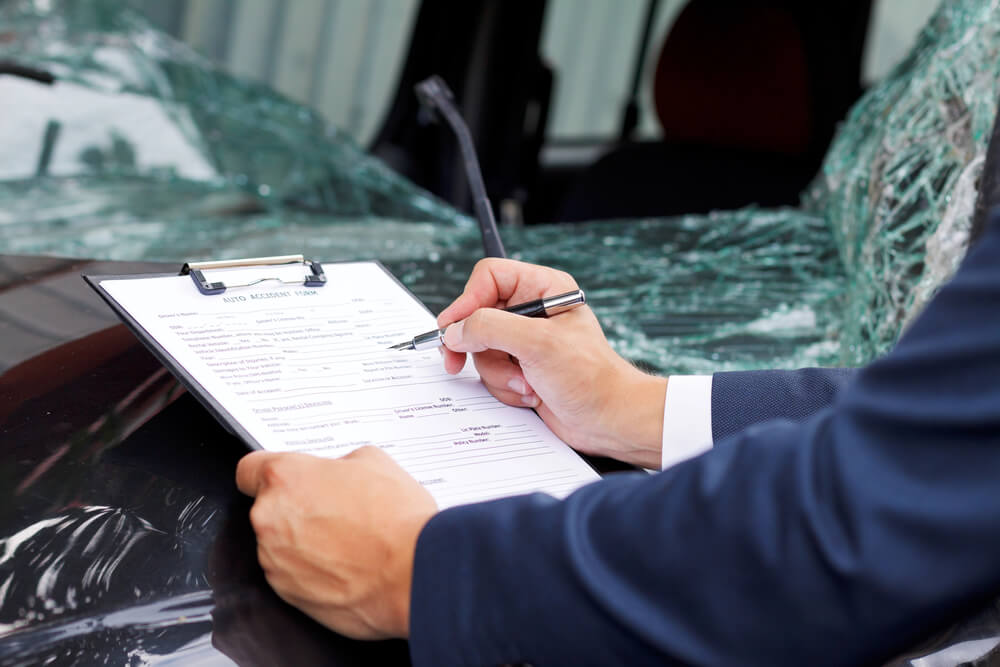A car accident can be a stressful–and potentially traumatic–experience for everybody involved. It’s even worse if you don’t know what steps you’re supposed to take after an accident to protect your rights and ensure your safety. When it comes to driver and passenger safety, there’s no such thing as being “too prepared.” To help you stay safe and minimize the stress you may experience in the aftermath of a collision, here’s your guide to understanding what to do after a car accident in California.
Immediate Steps to Take After a Car Accident

The moments following a car accident can be chaotic and stressful. However, it’s important to stay calm and take the right steps. Here’s an overview of the immediate steps to take.
First and foremost, you should ensure safety. Check if anyone is injured. If it’s safe, move your vehicle out of traffic to avoid further accidents. If moving your vehicle is not possible, turn on your hazard lights to alert other drivers.
After making sure everything is safe, you should call 911. Whether the accident is minor or major, it’s important to call the police and report the incident. A police report can be an important piece of evidence when dealing with insurance claims and potential legal actions.
You will also need to exchange contact information and document the scene. Collect names, contact information, insurance details and license plate numbers from witnesses and the parties directly involved. Take photos of the accident scene, vehicle damage and any visible injuries. Photograph the positions of the vehicles, skid marks, road conditions and any relevant traffic signs or signals.
Even if you think the accident may have been your fault, you should avoid admitting fault at the scene. Be honest with the police, but avoid admitting fault. Fault is often determined later, based on all the evidence and witness statements.
Lastly, you should seek medical attention as soon as possible. Even if you feel fine, it’s important to seek medical attention after a car accident. Some injuries, such as whiplash or internal injuries, may not be immediately apparent. A medical professional can assess your condition and document any injuries, which can be important for your insurance claim and any potential legal actions.
What is the California Car Accident Policy?
In California, drivers involved in car accidents must adhere to specific legal requirements to ensure proper handling and reporting of the incident. California law mandates that any accident resulting in injury, death, or property damage over $1,000 must be reported to the Department of Motor Vehicles within 10 days. Additionally, drivers must exchange information with the other parties involved and report the accident to their insurance companies promptly.
Legal Obligations After a Car Accident
Under California Vehicle Code Section 20002, drivers involved in an accident resulting in property damage are required to stop immediately at the scene of the accident and provide their contact information and vehicle registration number to the other party involved. They’re also required to present their driver’s license and insurance information upon request. Failure to comply with these requirements can result in severe penalties.
Reporting the Accident to the DMV
If the accident results in injury, death, or property damage exceeding $1,000, you must file a Report of Traffic Accident Occurring in California (Form SR-1) with the DMV within ten days. This report is mandatory even if the accident occurred on private property or if a police report was filed.
Consequences of Failing to Report
Failing to report a qualifying accident to the DMV can lead to penalties. Additionally, not reporting the accident to your insurance company in a timely manner can result in the denial of your claim.
Do You Have to Call the Police After a Minor Car Accident in California?

California law requires you to report accidents to the police if there are injuries, fatalities, or property damages exceeding $1,000.
While it might seem unnecessary to involve the police in minor accidents, it’s often in your best interest to do so. Calling the police ensures that an official accident report is filed, which can be invaluable when handling insurance claims or legal issues.
When to Call the Police
You should call the police if there are injuries, fatalities, or significant property damages. You should also call the police if the other driver appears to be under the influence of alcohol or drugs, if the other driver doesn’t have insurance or refuses to provide their insurance information, or if there is a dispute about how the accident occurred.
Benefits of a Police Report
A police report can provide an objective account of the accident. A police report will generally include detailed descriptions of the vehicles and damages. It will also generally include witness statements, witness contact information, and diagrams of the accident scene. This report can be a valuable piece of evidence when filing an insurance claim or pursuing legal action.
How Soon After an Accident Must It Be Reported to Insurance in California?
In California, it’s advisable to notify your insurance provider as soon as possible, ideally within 24 hours of the accident. Failing to report the accident promptly can result in complications with your claim and potential denial of coverage.
Understanding Your Insurance Policy
Review your insurance policy to understand the specific requirements for reporting an accident. Most insurance policies include a “duty to report” clause, which outlines the timeframe and process for reporting an accident.
Reporting an Accident to Your Insurance
As soon as possible, call your insurance provider’s claims department and inform them of the accident. Provide accurate and detailed information about the incident. Be sure to submit any required documents, such as the police report, photos of the accident scene, and medical reports. Your insurance company may conduct an investigation to determine fault and assess the damages. Cooperate fully with their requests for information and documentation.
How Long Do You Have to Settle a Car Accident Claim in California?

In California, the statute of limitations for personal injury claims arising from car accidents is two years from the date of the accident. This means you have two years to file a lawsuit if necessary. However, it’s important to initiate the claims process much sooner to ensure that evidence is preserved and witness statements are fresh.
The Importance of Acting Quickly
Delaying the claims process can result in the loss of crucial evidence and witness testimony. Additionally, insurance companies may be less willing to negotiate a fair settlement if too much time has passed since the accident.
Steps to Take to Settle a Car Accident Claim
First, you need to file a claim with your insurance company. You will do this by notifying your insurance company and providing all necessary documentation. You will also need to collect evidence to support your claim, including medical records, repair records and witness statements.
The next step is to negotiate with the insurance company. Work with your insurance adjuster to negotiate a fair settlement. Be prepared to provide evidence and argue your case. If you are unable to reach a satisfactory settlement, consult with an attorney to explore your options for filing a lawsuit.
Factors That Affect Settlement Timeframes
Several factors can influence the time it takes to settle a car accident claim. One factor is the severity of injuries. More severe injuries may require longer recovery times and more extensive medical treatment, which can delay the settlement process.
Another factor is the complexity of the accident. Accidents involving multiple parties or disputed fault can take longer to resolve. In addition, some insurance companies may have internal policies or procedures that affect the speed of settlement negotiations.
Common Mistakes to Avoid After a Car Accident

Knowing what not to do after a car accident is just as important as knowing the right steps to take. Here are some common mistakes to avoid:
- Not Seeking Medical Attention: Even if you feel fine, some injuries might not be immediately apparent. Always seek medical evaluation after an accident. Delaying medical treatment can not only harm your health but also weaken your claim.
- Failing to Report the Accident: Not reporting the accident to the police and your insurance company can lead to serious legal and financial repercussions. Reporting the accident promptly ensures that all necessary documentation is in place.
- Admitting Fault: Avoid making statements that could be interpreted as admitting fault at the scene of the accident. Fault is often determined based on a thorough investigation of all available evidence.
- Neglecting to Gather Evidence: Proper documentation of the accident scene and witness statements can be crucial for your case. Take the time to collect as much evidence as possible.
- Settling Too Quickly: Avoid settling with insurance companies before fully understanding the extent of your injuries and damages. Premature settlements can affect how much you can expect from a car accident settlement in California, resulting in inadequate compensation.
- Not Consulting with an Attorney: Consulting with an attorney can help you understand your rights and ensure that you receive fair compensation.
The Role of an Attorney After a Car Accident
The aftermath of a car accident can be overwhelming. An attorney can make this event less stressful by working to ensure you receive the care and compensation you deserve.
Hiring an injury attorney in Phoenix can provide several benefits. For example, attorneys specializing in personal injury law have the knowledge and experience to handle your case successfully. Attorneys also have access to resources such as accident reconstruction experts, medical professionals and investigators who can help your case.
Frequently Asked Questions About Car Accidents in California

What Should I Do If the Other Driver Doesn’t Have Insurance?
If you’re involved in an accident with an uninsured driver, your uninsured motorist coverage can help cover the costs. Report the accident to your insurance company and consult with an attorney to explore all your options. Your attorney can help you determine if other parties, such as vehicle owners or employers, may be liable for your damages.
Can I Still File a Claim If I Was Partially at Fault?
Yes, California follows a comparative negligence rule, meaning you can still recover damages even if you were partially at fault. However, your compensation will be reduced by your percentage of fault.
What Types of Compensation Can I Receive After a Car Accident?
Victims of car accidents in California may be entitled to various types of compensation, including compensation for medical expenses, pain and suffering, lost wages, property damage and punitive damages.
How Can I Protect My Rights After a Car Accident?
To protect your rights after a car accident, seek medical attention as soon as possible. Document the accident by collecting evidence, such as photos, witness statements and the police report. You should also report the accident to your insurance company and the DMV. In addition, you should consult with an attorney.
How Long Does It Take to Settle a Car Accident Claim?
The time it takes to settle a car accident claim can vary depending on the complexity of the case, the severity of injuries, and the willingness of the insurance company to negotiate. Some claims may be resolved in a few months, while others may take years to settle, especially if litigation is involved.
What Should I Do If the Insurance Company Denies My Claim?
If your insurance claim is denied, you should first review the denial letter. Understand the reasons for the denial and gather any additional information or evidence that may support your claim. After you review the letter, you can follow your insurance company’s appeal process to challenge the denial. An attorney can help you handle the appeals process successfully and, if necessary, pursue legal action.
What To Do After A Car Accident in California
Knowing what to do after a car accident in California can significantly impact the outcome of your case. At Sargon Law Group, we are dedicated to helping accident victims receive the care and compensation they deserve.
If you’ve been involved in a car accident, don’t hesitate to reach out to us for a free consultation with an auto accident lawyer in Phoenix. Contact us today to discuss your case and learn how we can assist you.
